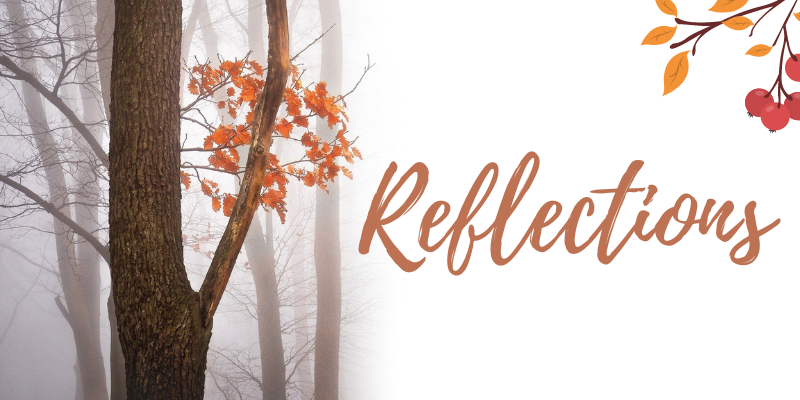
I’m so grateful for the women who attend our Bible study at church. Every time we meet I am blessed by the conversations, insights shared, their vulnerability and the strong desire to not just know more about God, but to know Him, to seek His face. What a joy to learn from and with them!
Our study this semester has been challenging. We are using Courtney Doctor’s Garden to Glory study, a workbook, examining God’s grand narrative from start to finish. It’s a birds-eye view, pulling together the whole story of the Bible in just 10 weeks.
Last night’s lesson spoke deeply to my heart. It is easy for us to let our convictions become personal standards of holiness for everyone else – judging others by our convictions – separating ourselves from others because they don’t believe this or that the same way we do. This separatism creates a “holier-than-thou” image as if we are saying, “Real Christians do (or don’t) … ” and does not represent well our call to be light and salt in our world. Courtney made us chuckle with her examples …
Real Christians don’t play Pokemon, watch Disney movies …
Real Christians don’t (or do) drink wine …
Real Christian women give birth naturally, no epidurals …
Real Christians send their kids to private schools or homeschool …
And so on –
She reminded us that we might be a bit surprised at the people we will see in heaven – people of all nations, people groups, languages, all church denominations, even all political groups, Republicans, Democrats, Independents, and Libertarians!
That’s not to say we shouldn’t have convictions – just that our convictions should not be the defining mark of our faith, and cause us to pull away from people who hold convictions different than we do. Our convictions are not our holiness. They do not determine our worthiness before God or our acceptability in His sight.
In Mark we see an example of holding to traditions as marks of holiness and hear Jesus’ rebuke:
One day some Pharisees and teachers of religious law arrived from Jerusalem to see Jesus. They noticed that some of his disciples failed to follow the Jewish ritual of hand washing before eating. (The Jews, especially the Pharisees, do not eat until they have poured water over their cupped hands, as required by their ancient traditions. Similarly, they don’t eat anything from the market until they immerse their hands in water. This is but one of many traditions they have clung to—such as their ceremonial washing of cups, pitchers, and kettles.) So the Pharisees and teachers of religious law asked him, “Why don’t your disciples follow our age-old tradition? They eat without first performing the hand-washing ceremony.”
Mark 7:1-5 NLT
Jesus replied to their complaint quoting from Isaiah 29, rebuking them for teaching man-made ideas as commands from God and saying, “You skillfully sidestep God’s law in order to hold on to your own tradition.” Our convictions, traditions, religious practices do not make us holy and we should not let them divide us. Instead we focus on our common ground, reaching out in love, not looking to change other people – they are not our projects! Instead we simply do life with one another, listen well, ask questions, and respond in love. We share the gospel, speaking truth, not personal conviction. It is not our responsibility to change people – only to point to Jesus.
God’s purpose, plan or mission for us is that we will be a holy nation, a holy people, so that the world will be blessed through us! The key word is holy … we are made holy and with “grace-driven effort” we grow in holiness. Circling back around, the women at the table each week are blessing me, encouraging me, pointing me to Jesus, helping me to continue to grow up in the Spirit!
The webbing together of God, humans, and all creation in justice, fulfillment, and delight is what the Hebrew prophets call shalom. In English we call it peace, but it means far more than just peace of mind or ceasefire between enemies. In the Bible shalom means universal flourishing, wholeness, and delight—a rich state of affairs in which natural needs are satisfied and natural gifts fruitfully employed, a state of affairs that inspires joyful wonder as the creator and savior opens doors and speaks welcome to the creatures in whom he delights. Shalom, in other words, is the way things are supposed to be. … To be a responsible person is to find one’s role in the building of shalom, the re-webbing of God, humanity, and all creation in justice, harmony, fulfillment, and delight. To be a responsible person is to find one’s own role and then, funded by the grace of God in Jesus Christ, to fill this role and to delight in it.
Cornelius Plantinga Jr.
.